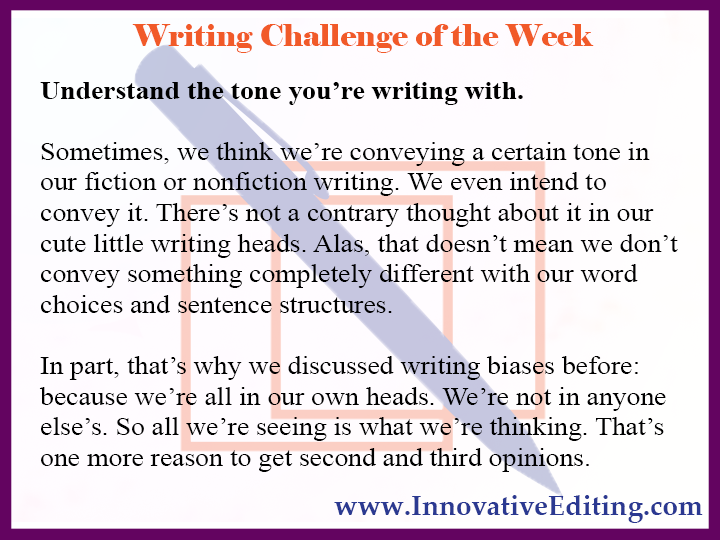Here’s Why You Should Never Assume You’re Right Before Writing
- Jeannette DiLouie
- Sep 6, 2017
- 3 min read

I’m going to call out a fellow writer today, and I’m going to do it directly for a change since he’s a non-fiction author. Simply put, those guys and gals have a greater obligation to their readers to be honest, open-minded and professional.
This isn’t to downplay fiction writers’ responsibility. We can be utterly appalling sometimes: snotty and ignorant, clumsy and lazy to the point of being downright insulting to our readers, not to mention wasting their time and money.
All the same, we present our works as creative products of our imagination. As stories. Made up documentaries. Not real.
Non-fiction authors present their published pieces as fact. As truthful and actionable information. So it only makes sense that they have higher expectations to live up to. They’ve accepted a higher calling.
Now, there are plenty of these writers who do an amazing job of fulfilling that role. There’s David McCullough, Azar Nafisi and Rebecca Skloot to name a few. And I’m going to include Christopher Russell in the mix as well. He’s the next Author of the Month thanks to a book I was privileged to be a part of.
It’s authors like Russell who make my editorial role so very rewarding.
But then there are writers like Jon Meacham who don’t do their job nearly as well as they should.
I think the last time I called out a non-fiction author by name was over a year ago in “It’s Okay to Murder Little Children,” a blog post that targeted Nicole Eustace and her entirely biased book War and the Passions of Patriotism.
Jon Meacham and his American Gospel aren’t anywhere that bad. Don’t get me wrong. And, unlike Eustace, I do think he meant well in writing this non-fiction publication despite his slightly snotty presentation at points.
However, he still ultimately falls short of upholding his intellectual integrity.
As of page 81, I’ve already caught him in three historical inaccuracies. The one is minor enough, but the other two are pretty big deals:
Meacham claims that Jefferson did, without a doubt, father at least one of his slave woman Sally Hemings' children. When, in fact, there is no conclusive evidence of that being true. Meacham might have used Wikipedia as his main source here, since its Thomas Jefferson page claims that
"After the death of his wife Martha in 1782, [Jefferson] had a relationship with his slave Sally Hemings and fathered at least one of her children."
Yet even it later on admits that
"Other scholars maintain the evidence is insufficient to prove Jefferson’s paternity conclusively. They note the possibility that additional Jefferson males, including his brother Randolph Jefferson and Randolph’s five sons, could have fathered Eston Hemings or Sally Hemings’ other children."
In fact, there were 27 genetic possibilities. And his brother was not only known to frequently visit Monticello but also hang out with the slaves.
None of this is to say that Jefferson wasn’t Eston’s father. He still could have been. But it is not a documented and proven reality like Meacham claims it is.
Meacham also claims that Queen Elizabeth was a more fair and permissive monarch than her preceding half-sister, Queen Mary. Yet there is plenty of proven and provable evidence otherwise, no matter how widely it’s disseminated. According to the University of Wisconsin, for example,
"The persecution of English Catholics [under Queen Elizabeth] was as cruel as it was necessary in the government’s eyes. One of the chief seekers of priests, Richard Topcliffe, showed particular relish in his use of his own personal portable rack, and priests sentenced to death died painfully by hanging, drawing, and quartering."
For the record, that’s not what typically happens under an open-minded monarchy.
In both cases, I’m more than willing to give Meacham the benefit of the doubt in saying that he genuinely assumed his words were correct. That’s how he was taught, so that’s what he accepted.
But that’s the problem. A non-fiction writer’s job isn’t to assume and accept anything. It’s to research. It’s to verify. It’s to build a sound and supportable argument based on the facts, not opinions or pre-conceived biases.
It’s also to avoid using the same three individuals to prove a fact about a much larger population, which Meacham also hasn’t done so far. The result is that my faith in his accuracy keeps falling a bit further with every new chapter I read.
Since that’s the very opposite effect that non-fiction writers want, they should take this lesson to heart: Never assume you’re right before you write, while you write or after you write.
Question yourself and your sources at every step of the publishing process, whether you’re researching, writing or going through the editorial phase. That way, your readers can rely on you.
And you can rest much more easily in a job well done.




